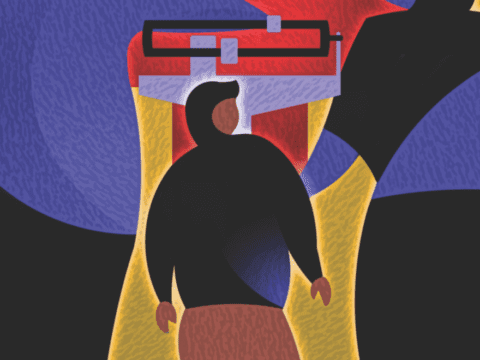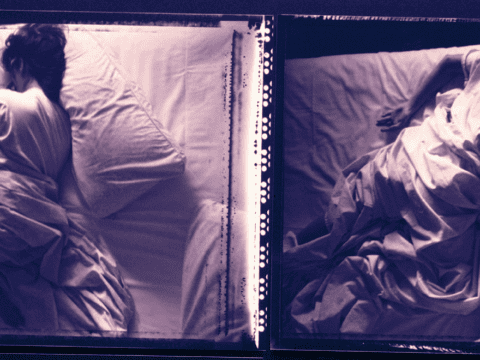Three decades ago in England, 21-year-old Frances James confronted the family friend who had molested her at age five. “Go to hell,” she whispered to his grave. As tears welled up in her eyes, James demanded a response to the question that would never be answered: “Why me?”
For years, James (not her real name) struggled to overcome her past. She numbed her pain with illegal drugs for a time, but the memories flooded back after she took a psychology course in her late 20s. “My subconscious mind started playing back the past,” she says. “It consumed me.” She stopped eating, slept all day and fell into a depression.
You may unsubscribe from any of our newsletters at any time.
Forgiveness researchers are beginning to unravel the reasons why holding onto hurt is toxic to our health. In a 2013 experiment at the University of Pisa, Italy, psychiatrist Pietro Pietrini provided scripts of emotional injuries to volunteers, who were instructed to either forgive or imagine revenge. Those who brooded became angry, whereas those who forgave felt calm.
Pietrini contends forgiveness is an evolutionary healing mechanism that cures you of the stress created by offences. People who forgive have fewer heart problems, sleep better, live longer and enjoy better mental health. “Forgiveness is better than a pill,” he says.
While the biblical exhortation to “turn the other cheek” is well known, Rev. Drew Maxwell, minister at Calvary United in St. Jacob’s, Ont., says the verse urges us to grant mercy. “If someone slaps you and you take offence, you’re being controlled by their actions,” he says. But “if you offer the other cheek . . . their actions no longer have power over you.”
In his counselling experience, Maxwell has seen people recover when they forgive. “When you give up your burden [to God], suddenly you’re not carrying physical stress and anxiety, and you become more peaceful and joyful.”
While it makes intuitive sense that brooding is bad for the brain, scientists are beginning to pinpoint the mechanisms at work. When we’re offended, we rehearse our injuries mentally, a process known as rumination, says Charlotte vanOyen Witvliet, a psychology professor at Hope College in Michigan. “We’re looking to learn something so that we can prevent the injury from recurring.” The problem: rumination causes us to see ourselves as victims. “We feel trapped in a prison of pain,” she says.
Witvliet has documented the physiology of brooding, examining subjects’ responses to old hurts. Those who ruminated were sadder, angrier and physically more aroused (displaying a higher heart rate and blood pressure and increased sweating and frowning); those who forgave were mentally and physically calmer. Witvliet attributes this difference to the resolution of negative emotions and the corresponding extinction of the stress response.
Everett Worthington, a psychology professor at Virginia Commonwealth University, explains that when someone upsets you, your sympathetic nervous system kicks into high gear, turning on the fight-or-flight response and releasing cortisol, the stress hormone. If you continue ruminating, your body cranks out stress signals endlessly. This state of high alert wears down the body, damaging arteries, impairing the immune system and even causing brain shrinkage. “Rumination takes our attention off the work we’re doing and the relationships we’re involved in. We have less to give,” he says. When you let those negative feelings go, however, your nervous system winds down, opening the door to physical as well as psychological well-being.
Linda Alldred-Johnson, a parish nurse with the United Church and the Presbyterian Church, has witnessed the benefits of forgiveness first-hand. In her work in an intensive care ward, she noticed that blood pressure, breathing rate and pulse shot up in patients who had unresolved issues with visitors. “If they had a good visit, their vitals all went down,” she says. “Patients were able to focus more on the healing process because their minds were at peace.”
Inuit elder Piita (Peter) Irniq, a cultural adviser to the Truth and Reconciliation Commission, experienced this feeling of calm when Prime Minister Stephen Harper apologized for the residential school system. Attending the apology in 2008, Irniq recalls the moment when Harper looked him directly in the eye and said, “Mamiattugut,” which means “I’m sorry” in Inuktitut. “The apology made me feel like a full-fledged Canadian for the first time in my life,” he says.
In that moment, Irniq chose to forgive — and got his health back. Irniq had been battling headaches since he was sent to a residential school in Chesterfield Inlet. There, the nuns stripped him of his fur clothing; when he spoke Inuktitut, they whacked him with yardsticks. After the apology, the headaches vanished. “I feel at peace today,” he says. “I feel I can live again.”
Worthington is not surprised that Irniq’s headaches were eased by forgiveness. The migraines may have been caused by angry rumination, which tenses up facial muscles. When Irniq forgave, they likely relaxed, easing the pain.
But while genuine forgiveness has a host of health benefits, forced forgiveness can backfire, says psychologist Kathryn Belicki of Brock University in St. Catharines, Ont. If you’re pushed into forgiving before you’re ready, you can be retraumatized as your hurt isn’t acknowledged. Your unresolved anger toward your offender actually increases.
The route to forgiveness involves empathy for the offender, says Belicki. “It changes how you see the event. . . . It makes it less intentional so it’s easier to forgive.” Compassion improves mental health because it reduces rumination and calms the body.
Empathy eventually helped 44-year-old Toronto school teacher Kayla Davidson (name has been changed) to forgive her own mother, who had neglected her emotionally. After her mother kicked her out on her l8th birthday, Davidson was enraged and avoided her for years. When they did see each other, Davidson was too tense to talk. She became restless, suffered stomach aches and ground her teeth.
As Davidson grew older, her mother shared memories of growing up in an orphanage. One day, while Davidson listened to her mother talk about her rocky beginnings, she had a startling realization. “She was so tiny, and she just had a look of complete devastation on her face,” she recalls. “At that point, I realized she needed a parent more than I did.” Davidson finally forgave her mother. And she did something she hadn’t been able to do for years — she put her arms around the woman who had hurt her.
Davidson’s whole life shifted after her epiphany. Her stomach aches eased, and she stopped grinding her teeth. “There was a lot less sadness,” she says.
But not everyone is ready to put themselves in their offender’s shoes. For those people, it can be useful to find the silver lining, says Witvliet. For example, perhaps the hardship helped you learn a life lesson or recognize your own resilience. Maybe it simply helped you to better appreciate those who support you. “Gratitude crowds out the negative aroused emotions,” Witvliet says.
Back at the gravesite, James was shocked by her own rage. “I was a gentle and loving person, [but] I was turning into a monster,” she says. “I didn’t want him to create this in me.” And so she chose, in that moment, to forgive.
When James returned home to Toronto, her depression lifted and her flashbacks disappeared. She also formed a healthy relationship with a loving man for the first time. “I was a new person,” she says.
For James, the key to letting go of her abuser’s hold on her came in the form of compassion. She read books about sex addiction and learned that many men who abuse children were mistreated in their own childhoods. “Understanding it put things in perspective and helped me forgive,” she says.
Today, James still cries occasionally when she’s reminded of the past, but she doesn’t dwell on it. “He didn’t break me,” she says. “I healed.”
***
This story first appeared in The United Church Observer’s June 2015 issue with the title “Forgive and feel better.”













